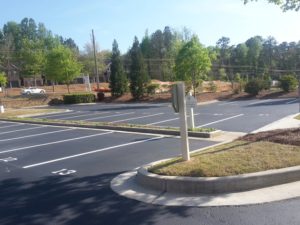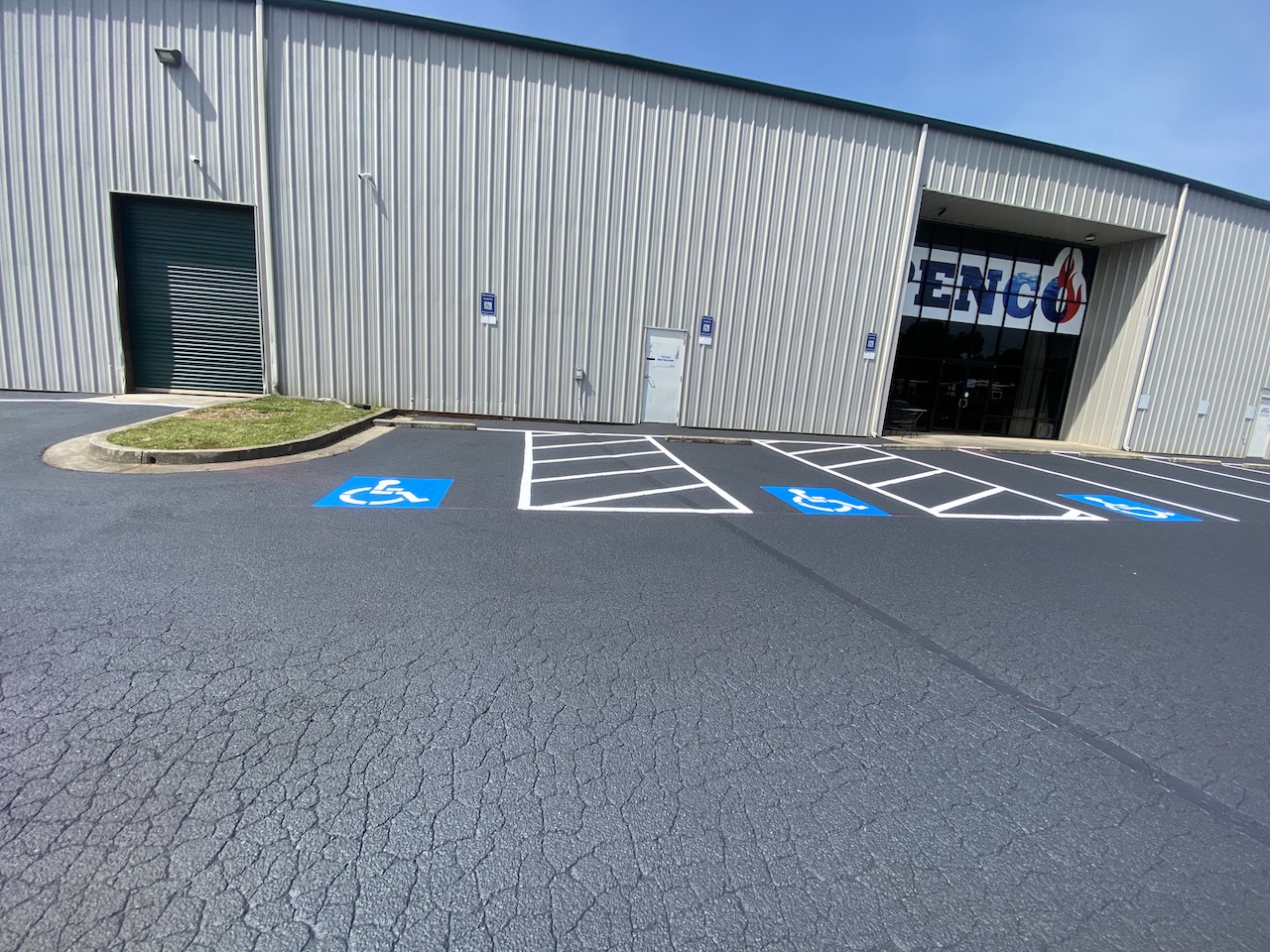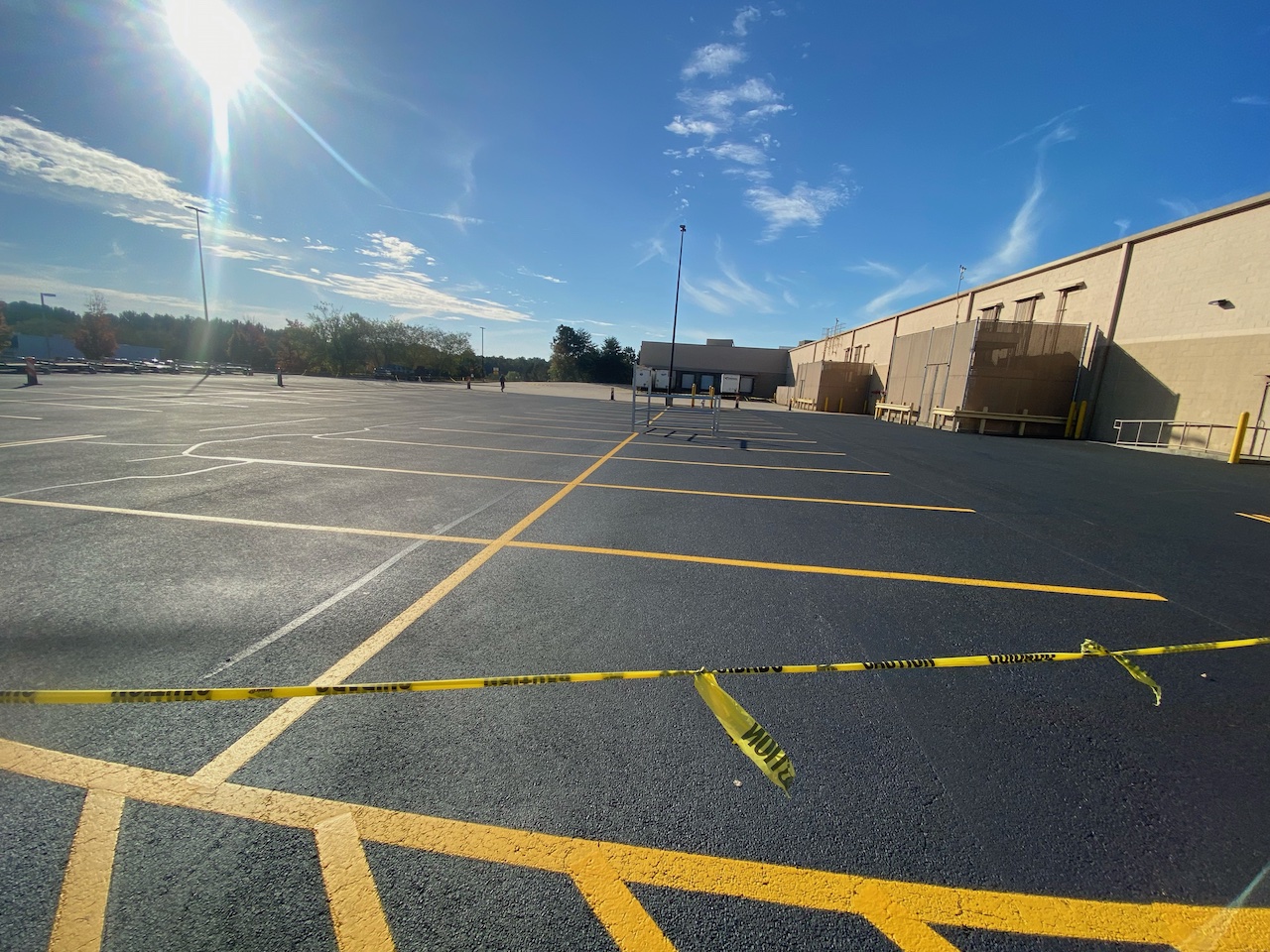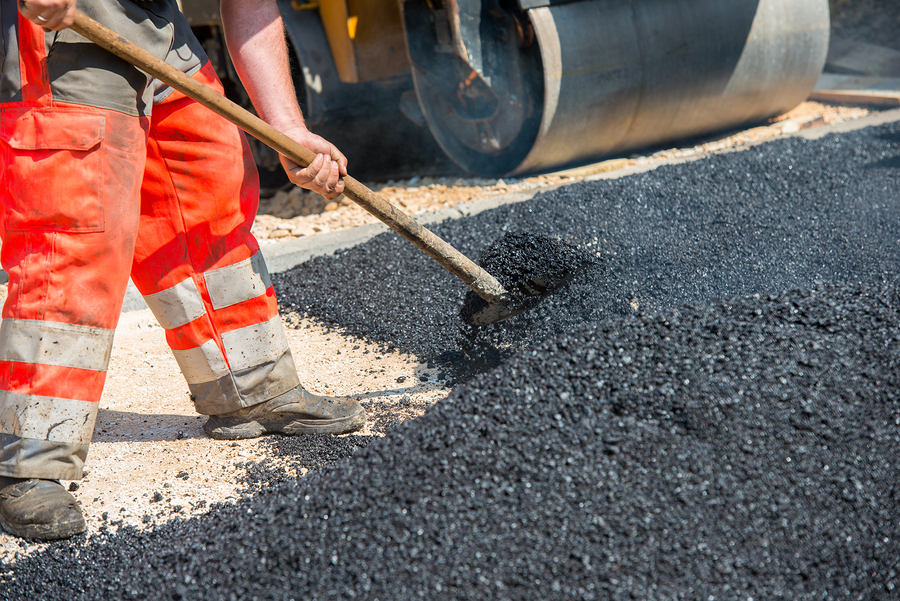
Is Asphalt Sealcoating Possible in Colder Weather?
Why Do Asphalt Sealcoating Contractors Consider Cool Weather a Problem?
Sealcoating mix contains a high percentage of water. This water must evaporate at a reasonably steady rate if the sealant is to cure properly. As you probably know, rates of evaporation increase as temperatures rise; heat excites the water molecules, so they move faster and have less difficulty escaping the solution. When the temperature is reduced, the movement of the molecules becomes more sluggish, so evaporation slows.
However, a sealcoating contractor must also understand how other factors can affect the rate of evaporation. The water molecules escaping from the sealcoating must have somewhere to go. If the air above the sealant is already full of water molecules, the water remains trapped in the sealant. As humidity levels increase, the saturated air above the sealant makes it more difficult for the water in the sealcoating mix to escape, so the rate of evaporation slows. If a breeze is blowing, however, the wind can help move the saturated air away so that the molecules can escape easier. Unfortunately, too much wind can result in the premature drying of the top layer of sealant, and this can be just as big a problem as delayed drying.
What Happens When Asphalt Sealcoating Fails to Cure Properly?
If sealcoating does not cure properly, it will be unable to provide the protection that makes it such an important part of any asphalt maintenance program. It will not develop a tough, continuous film, and it will not bond properly to the pavement. In all likelihood, the sealant will crack or flake off within five or six months, leaving the asphalt pavement exposed to the weather and increasing the risk that the pavement will be damaged by traffic. Furthermore, if the temperature is too low during the application and curing process, the beauty of the sealant can be affected. Instead of an even appearance and black color, the sealant can appear blotchy and gray throughout its short life.
Choose MH Greeson for Your Asphalt Maintenance
MH Greeson is a well-respected, experienced asphalt contractor serving Atlanta and most locations in North Georgia. We offer asphalt striping, asphalt sealcoating, asphalt crack sealing, pavement marking, pothole repair, traffic signs, car stops and bollards. Our workmanship is exceptional, our customer service is exemplary, and our prices are affordable. We offer free quotes, so submit our online request form or call our Marietta number at 770-335-2983 to get started.




